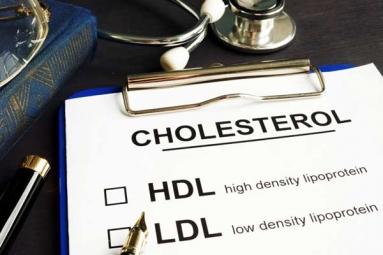
(Image source from: Canva.com)
Have you ever noticed that when you're feeling stressed, your head might feel light, your vision could start to blur, your heart races, or you sense a headache coming on? Most individuals would think these are signs of an approaching panic attack, mainly caused by rising stress levels. Although this can be true and it’s important to recognize these clues and try simple methods to relieve stress, an additional step for your long-term health is to keep an eye on your blood pressure. The basic reason for this is that spikes in stress can trigger sudden increases in blood pressure, which are a serious health danger and could increase your chances of developing high blood pressure.
If you weren’t aware, stress has a complex relationship with high blood pressure, and many studies around the globe are examining it. Since stress is a real part of life nowadays, and high blood pressure is famously known as a "silent killer," it’s crucial to understand this connection better. It’s even more vital to recognize the signs of stress-related high blood pressure and discover some simple strategies to manage it. However, it’s essential to point out that if you experience stress-related high blood pressure or any blood pressure spikes, you should see a doctor right away. Ongoing stress leads to more than just feeling anxious. It activates your body’s "fight-or-flight" response, which releases stress hormones like adrenaline and cortisol. In the short term, research such as the one published in Psychosomatic Medicine in 2024 indicates that this can elevate your systolic and diastolic blood pressure by approximately 15.2 mmHg and 8.5 mmHg, respectively.
Over time, repeated responses to stress lead to what scientists refer to as allostatic load, which is the accumulated pressure from long-lasting stress that damages your body’s heart and blood systems. Additional studies support this claim: long-term psychological stress can double the chance of developing high blood pressure.
In India, there are similar findings, as shown in a rural study published in the Journal Of Clinical And Diagnostic Research in 2014, where higher mental stress scores were significantly related to hypertension risk, especially in men. Among university teachers, about 84% reported experiencing moderate to high stress, and 21.4% were found to be hypertensive, revealing a significant link between stress and increased likelihood of high blood pressure.
Indicators Of Stress-Related High Blood Pressure: What Should You Look Out For?
Since high blood pressure is frequently a "silent killer"—particularly in India, even among younger people—early signs can easily be overlooked. However, indicators that stress might be playing a role include:
Regular headaches, tiredness, dizziness, or shortness of breath during everyday activities.
Ongoing sleep issues or low energy levels.
Increased anxiety or emotional strain (it’s noted that up to 49% of people with high blood pressure face depression, and over 25% encounter anxiety or stress).
Let's break down how stress triggers high blood pressure:
Sympathetic Nervous System Overdrive: Stress increases sympathetic activity, narrowing blood vessels and raising peripheral resistance.
Delayed Recovery from Stress: It’s not only about quick spikes. If your blood pressure remains high for a long time after stress, this slow recovery can be a risk.
Inflammation & Endothelial Effects: Stress might damage the function of the endothelial lining of blood vessels and increase inflammation, which can worsen high blood pressure.
Lifestyle Spiral: Individuals under stress frequently develop unhealthy behaviors such as bad eating habits, smoking, and a lack of physical activity, which raise the risk of high blood pressure (also common in cases where anxiety and high blood pressure overlap).
As mentioned previously, stress is a normal aspect of life, but effectively handling it is an essential life skill for everyone to cultivate. Here are some useful strategies to help manage stress-related high blood pressure:
Practice deep breathing or meditation: This helps to soothe the nervous system, lowers stress hormones, and can help decrease blood pressure.
Try mindfulness or gratitude exercises: These activities help manage daily stress and keep blood pressure more stable.
Take a brisk walk for 45 minutes each day: This is recommended by heart doctors in India; physical activity naturally reduces stress and blood pressure.
Maintain a balanced diet: Reduce intake of salt, sugar, and fried foods; include more fruits, vegetables, and whole grains.
Build healthy habits: Ensure you get good sleep, limit alcohol consumption, refrain from smoking, and remain active.
Strengthen social support: Talking with friends, family, or coworkers can help relieve stress, especially in stressful job situations.
Be aware of your triggers: Recognize the situations that elevate your stress and prepare healthy coping methods beforehand.
When To Seek Help: Don’t Ignore These Signs
If your blood pressure readings remain elevated despite changes in your lifestyle, consult a physician. Be alert for these fluctuating patterns:
White-coat hypertension: High at the clinic but normal at home.
Masked hypertension: Normal at the clinic but high outside; both are related to stress.
If you experience ongoing anxiety, depression, or significant stress impacting your daily life, seeking mental health support can also benefit your blood pressure.
Why This Matters In The Long Term?
Neglecting stress-related hypertension puts you at risk for long-term consequences, such as:
Chronic hypertension can silently harm your heart, brain, kidneys, and eyes.
Uncontrolled blood pressure increases the likelihood of heart attacks, strokes, kidney problems, and can also impact mental health and adherence to treatment.
However, the encouraging news? This kind of hypertension is very preventable and manageable, particularly when stress is recognized and addressed promptly.
Stress is more than just a feeling. It acts as a force that can discreetly increase your blood pressure and threaten your health. The positive part? You have the ability to break this cycle. Start with small changes like improving sleep, practicing mindfulness, engaging in gentle exercise, and nurturing connections — and notice your stress and blood pressure decrease. But continue to monitor your blood pressure readings, listen to your body, and don’t hesitate to seek assistance when necessary.










